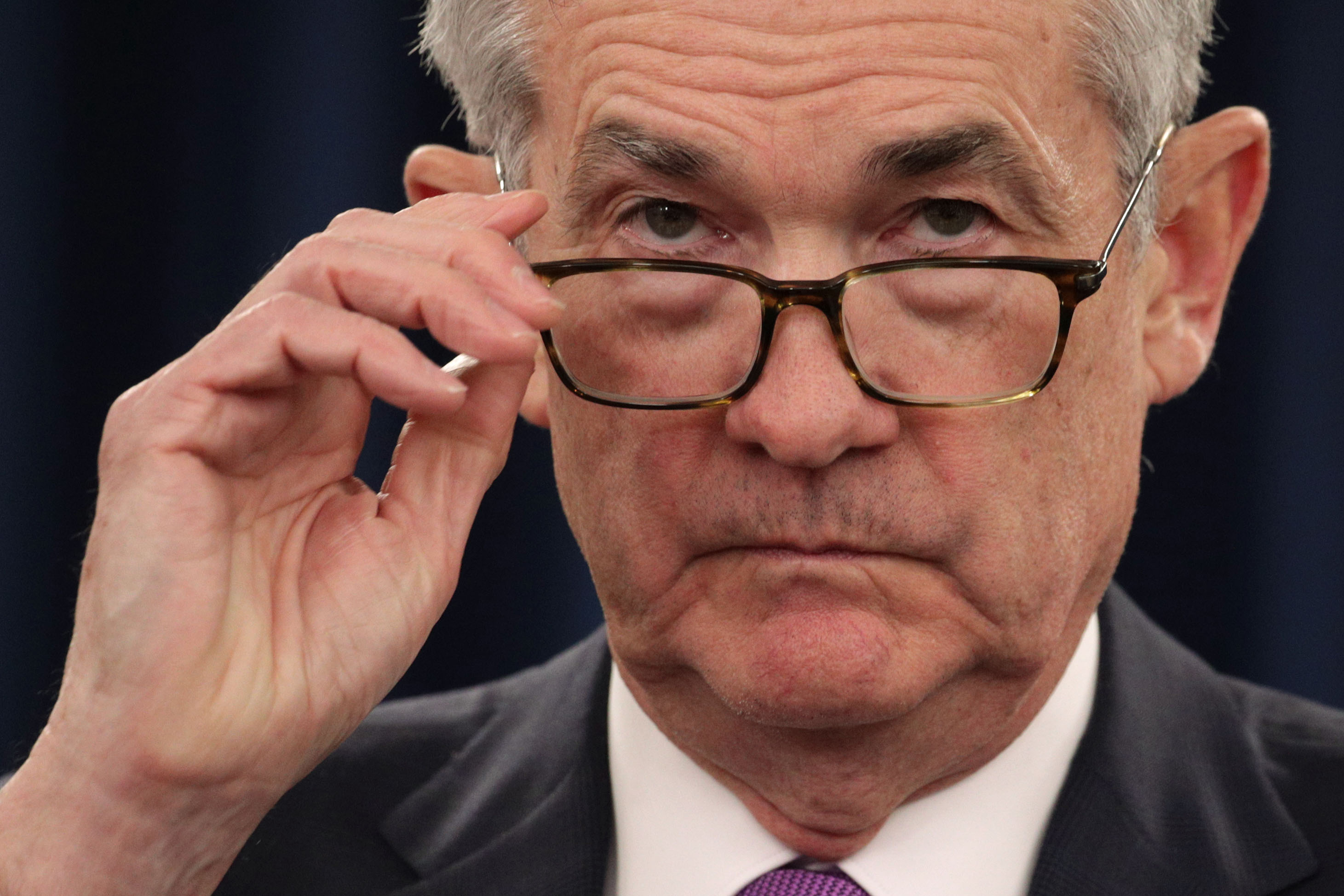Is the Fed keeping steady or moving too slow?
Investors are getting mixed signals

A free daily email with the biggest news stories of the day – and the best features from TheWeek.com
You are now subscribed
Your newsletter sign-up was successful
The smartest insight and analysis, from all perspectives, rounded up from around the web:
The Federal Reserve said last week it wouldn't raise interest rates, said Kate Marino and Sam Ho at Axios — and it still sent a shock through the markets. The message coming out of the central bank's quarterly meeting was there would be "no change to anything." Yet investors eagerly parsed the Fed's 'dot plot,' a graph that tallies where Fed policymakers expect the rate it charges banks to borrow money to be at the end of 2021, 2022, and 2023. The new survey shows more of the Fed's members expect that Fed funds rate, currently very near zero, to be hiked next year. The mixed signals left investors simultaneously "relieved the Fed may act to keep the market from getting (more) overheated, and skittish about the pending removal of the punch bowl."
Is anybody really in charge of monetary policy these days? asked Joseph Sternberg at The Wall Street Journal. Fed chairman Jerome Powell has become "a hostage to the market." The Fed has been wary of sudden policy changes since 1994, when markets went haywire after an abrupt interest rate hike. Now it relies increasingly on the dot plots — more or less wild guesses, since nobody at the Fed or anywhere else "can project with any certainty the shape of the economy or appropriate monetary policy in two and a half years" — to give the market a vague sense of the outlook, without committing to any specific action. Doing nothing now will exacerbate the challenges ahead, said Mohamed El-Erian at Bloomberg. With inflation rising and investors acting recklessly, the Fed "continues to fall further behind the curve." The longer the central bank delays "easing its historically astounding policy stimulus," the greater the threat "it will be forced to slam on the policy brakes."
The Week
Escape your echo chamber. Get the facts behind the news, plus analysis from multiple perspectives.

Sign up for The Week's Free Newsletters
From our morning news briefing to a weekly Good News Newsletter, get the best of The Week delivered directly to your inbox.
From our morning news briefing to a weekly Good News Newsletter, get the best of The Week delivered directly to your inbox.
Powell has a lot of experience with this, said Neil Irwin at The New York Times. He pushed to keep the economy from overheating in 2013, 2015, and 2018; now the Fed's shifts in those years look like mistakes, and Powell would rather move cautiously "than risk choking off a full economic recovery." Moreover, he has developed "a profoundly optimistic view of the coming years." He has come to think that "the labor market can run hotter for longer than a lot of economists once assumed," and that letting employment and wages reach their full potential will have benefits for years ahead. This economy is "almost unrecognizable from just 16 months ago," said Heather Long at The Washington Post. Remote work, soaring home prices, and inflation create new dynamics. Workers are "quitting at the highest rate ever recorded" in favor of better pay and conditions. Policymakers have to gauge "how many of these changes are temporary and how many are true fundamental shifts that will stick around."
Ten months in, the Fed's new "jobs first" policy is being tested, said Howard Schneider at Reuters. The framework put a return to full employment above other concerns. But "faster inflation and the slower-than-expected employment rebound" have ignited an "old-school Fed debate." Whether the Fed can "support a robust jobs recovery and control inflation will be the subject of intense interest in coming weeks."
This article was first published in the latest issue of The Week magazine. If you want to read more like it, you can try six risk-free issues of the magazine here.
A free daily email with the biggest news stories of the day – and the best features from TheWeek.com
-
 The environmental cost of GLP-1s
The environmental cost of GLP-1sThe explainer Producing the drugs is a dirty process
-
 Nuuk becomes ground zero for Greenland’s diplomatic straits
Nuuk becomes ground zero for Greenland’s diplomatic straitsIN THE SPOTLIGHT A flurry of new consular activity in Nuuk shows how important Greenland has become to Europeans’ anxiety about American imperialism
-
 ‘This is something that happens all too often’
‘This is something that happens all too often’Instant Opinion Opinion, comment and editorials of the day